Art Buchwald recalled how the Marine Corps tried to make a man out of him during World War II. Years later, he poignantly reunited with the drill instructor who had disciplined him day and night.
-
May 2023
Volume68Issue3
Editor’s Note: Art Buchwald was a syndicated columnist, winner of the Pulitzer Prize, and author of nearly 30 books. Erma Bombeck called him “the reigning genius of American satire for over 40 years.” The following is excerpted from Buchwald’s memoir, Leaving Home, which used humor to lighten the story of his troubled childhood in an orphanage and foster homes, his wartime experiences, and his adventures in Paris after the war, where he talked his way into a job with the International Herald Tribune.
A group of us were in a bowling alley in Forest Hills, New York when the news of Pearl Harbor flashed over the radio. Everyone was certain of the brevity and outcome of the war, and fearful it would be over before we could serve our country.
Our group was not too informed about the Japanese, but those of us who had been raised in Jewish homes knew what a butcher Adolf Hitler was. Every Jewish family in America knew what Hitler was doing to their relatives — but President Roosevelt didn’t appear to know and neither did anyone else in the government.
Read “Art Buchwald's Funny Business” by Michael Hill in this issue.
It dawned on me that the Japanese attack could be my ticket out of high school. The next morning, I went down to the recruiting station, lied about my age, and filled out papers. But I still needed parental permission. When the forms arrived at home a few days later, my mother went on a crying jag and everyone started to yell at me at once. My adoptive father was so mad, he shouted, “You came by accident and you’ll go by accident,” and he tore up the papers.
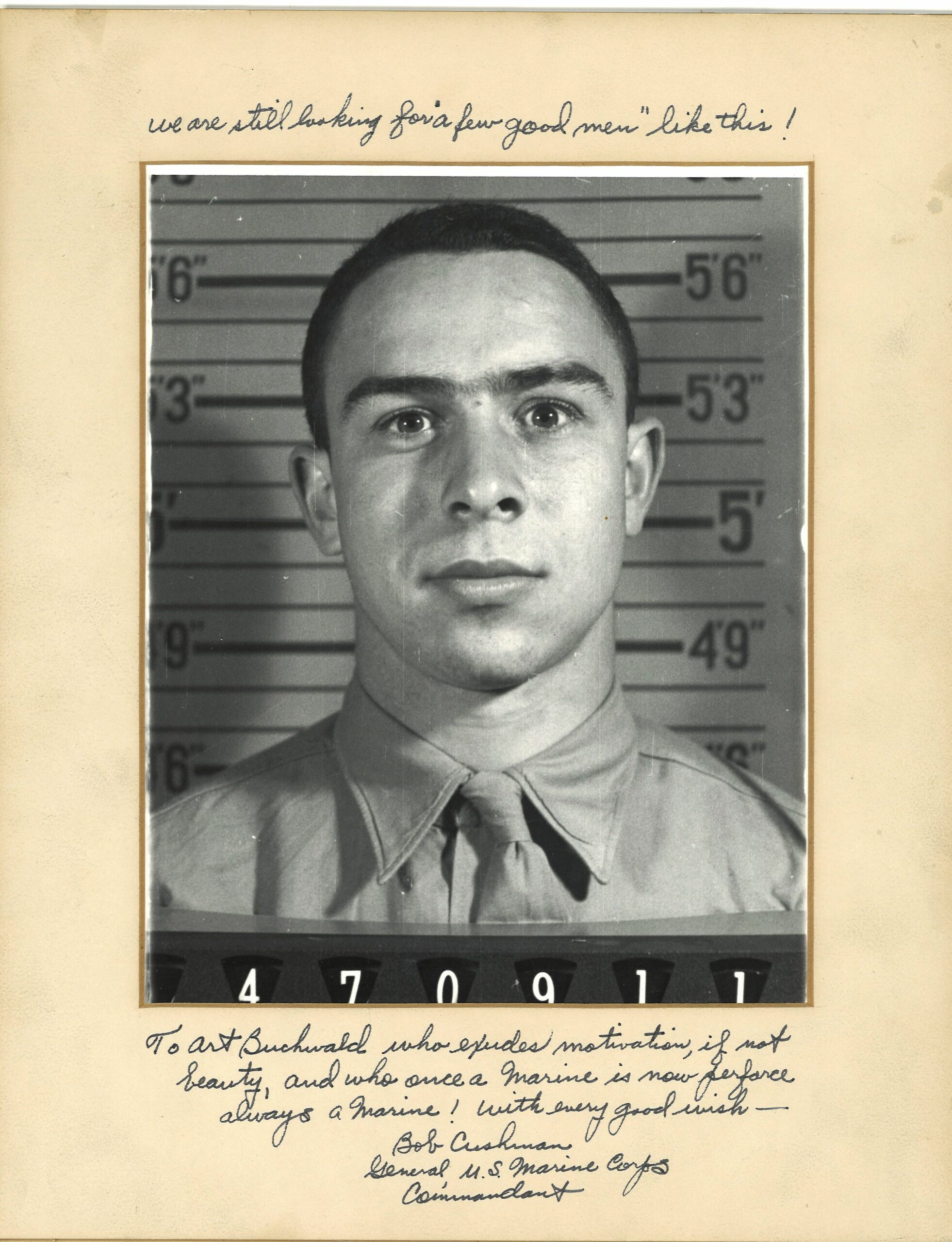
The following October, I ran away to join the Marines. I was out in the street on Skid Row in Greensboro, North Carolina trying to work it out in my head when a tiny, grizzled man stopped me. “Would you give me a dime so I can get a drink?” he whined.
“I’ll do better than that,” I said. “I’ll give you a pint of whiskey.”
“What do I have to do?” he asked suspiciously.
“I’m trying to get into the Marines and my dad won’t let me. If you become my father for just thirty minutes, I’ll give you the whiskey.”
The old man’s bloodshot eyes crinkled up and he said, “Why, that’s patriotic.”
Someone steered me to a notary and I said, “Can I talk to you privately?” He took me into the other room.
“My dad’s been drunk for a month and I’m trying to get into the Marine Corps. Would you have any objection if I steadied his hand while he signed the papers?”
“I’ll do anything for someone going into the Marines,” he said.
We went back and I held the drunk’s shaking hand so that the signature read, “Joseph Buchwald.”
People are constantly amazed when I tell them I was a Marine. For some reason, I don’t look like one — and I certainly don’t act like one.
Despite what others think, I earned my stripes as a Marine. At the same time, the Corps gets full credit for straightening me out. At seventeen, I was young, I was unhappy, and most of all, I was undisciplined. My military hitch was a three-year experience, which I think about a lot. It was also a very painful one, which is exactly how the Marines intend it to be.
We arrived at Parris Island at three o’clock in the morning. People in pressed khaki uniforms and pointed hats covering pointed heads started to yell at me. The non-commissioned officers alternated between cussing and personal epithets. We were told to line up, and then we were ordered to get on the bus and go home because we would never make effing Marines. We were all bedwetters, they shouted.
Parris Island was turning out U.S. Marines as fast as they could — and then, after a little more training at advance bases, the recruits were being shipped off to places like New Guinea, Guadalcanal, Bougainville, Tulagi, and other unheard-of paradises in the South Pacific.
That was the little picture, which didn’t concern me too much. I was only involved with the big picture — my survival at P.I.
In every Marine’s life, there is one man he remembers as long as he lives — and that is his drill instructor. The D.I. has a singular role, and that is to take raw recruits and turn them into fighting machines. He does this through threats, psychological terror, physical exercises, and hazing. My drill instructor was Corporal Peter Martin Bonardi of Elmhurst, Long Island. Every Marine who goes through boot camp claims later in life that his DI was the toughest, meanest son of a bitch in the whole United States Marine Corps.
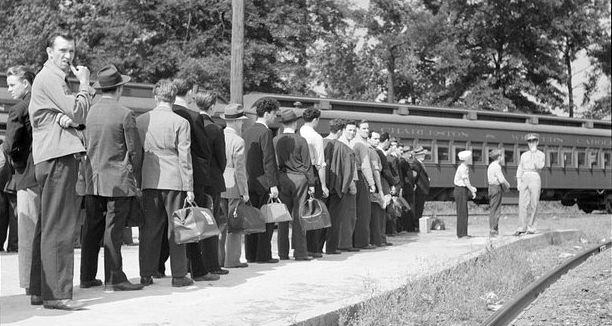
It was no contest — mine was.
What made life even more difficult for me than for the other recruits was that I was a Yankee in a Southern platoon. Therefore, I was the perfect goat. Bonardi was constantly running up and yelling at me in my face.
I was punished in the day and I was punished at night. Bonardi never ran out of tortures. He made me clean the barracks toilet with a toothbrush. Then he forced me to march around the barracks with rocks in my pack.
I was brushing my teeth when he called everyone out for muster. When I laughed when we passed another recruit with a bucket on his head, he made me put one on my head and start shouting, “Hoohoo, hoohoo, I am a shitbird, too.”
But in eight weeks, the D.I.s accomplished their mission impossible. We may not have been seasoned Marines, but we looked like seasoned Marines. For the first time, Bonardi smiled at us before he said good-bye.
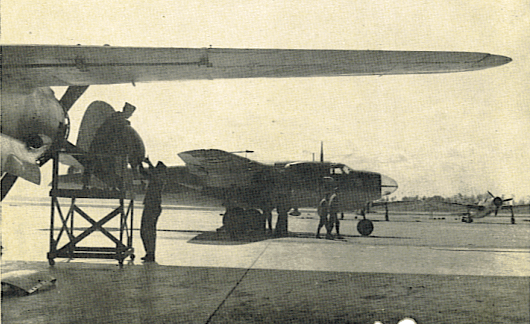
I was assigned to ordnance school at Cherry Point, North Carolina, which meant that I had to learn all about guns, bombs, and torpedoes. I hated guns, bombs, and torpedoes — not because I had anything against their purpose, but because I had no idea how they worked and I had never had any mechanical aptitude.
I kept telling the instructor to put me in something else before I endangered the pilots. But he was ordered to turn out ordnance men, no matter what the cost.
To give you an idea that I knew what I was talking about — a year later, I was in the Central Pacific, loading a 500-pound bomb. I pushed the wrong thingamajig and released the bomb from its rack. It plummeted to the ground, just missing my foot. Everyone along the flight line either headed for bomb shelters or hit the deck.
I realized I was in trouble, so I dropped to the deck and screamed, “My foot, my foot, I think I’ve broken my foot.”
Someone called for an ambulance and before they could organize a Lynch party, I was transported to the hospital. The doctor took X-rays and said, “There is nothing wrong with your foot.” I said, “Doc, if you release me now, you’re going to have to issue a death certificate. Please keep me overnight.”
He did, and I escaped the squadron’s wrath. I mention this incident as only one of dozens that prove that even the Marine Corps can make mistakes when it decides who should be handling our country’s weapons.
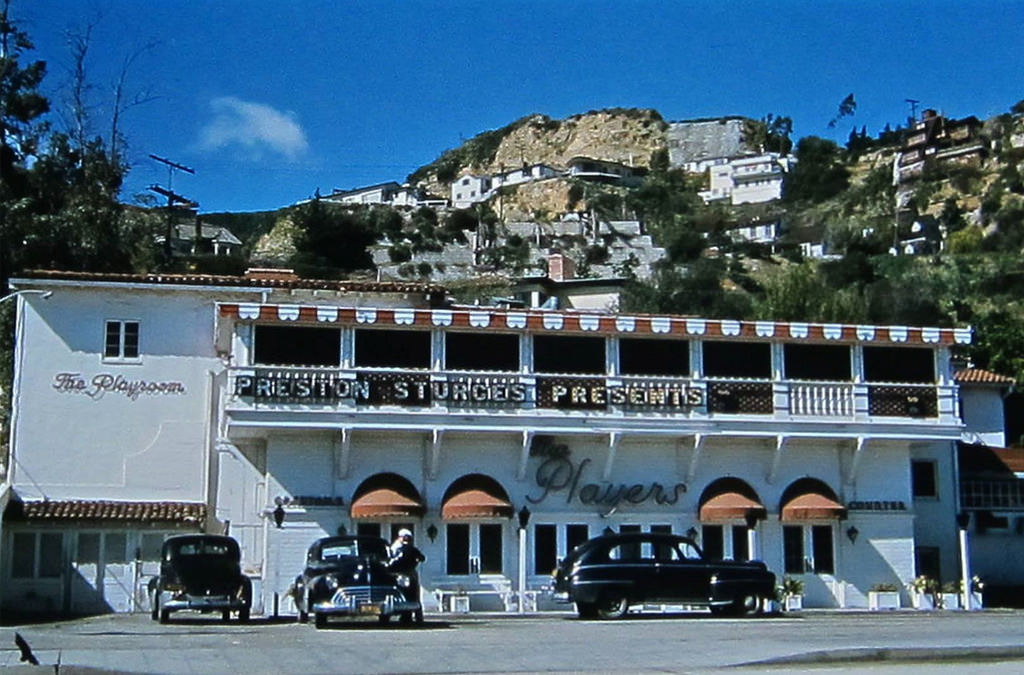
I was assigned to VMF 113, a fighter squadron that flew the F4U Corsair — one of the most beautiful planes of World War II. The wings were designed like a gull’s and the pilots said that it was the best aircraft made.
We were sent to El Toro Marine Base in Orange County, California. The men all knew we would soon be departing for overseas, so we took as much leave as we could. I usually headed for Beverly Hills and upper Sunset Boulevard. First, I was hoping to meet movie stars, and secondly, the people in the film business did not see too many servicemen, and when they did, they were quite nice to us.
I would go to a ritzy restaurant like the Players, owned by the director Preston Sturges, and order a beer. Then, when some patriotic civilian said to me, “What are you drinking?” I would reply, “Scotch.” I had not been outside of the States yet, but that didn’t bother anyone, including me. I discovered that the more I clammed up about the battles I had fought in, the more battles they thought I had been in.
It wasn’t easy to say good-bye to California in early 1943. But we set sail for Hawaii, and those of us who had never been overseas before were very excited. I am a big fan of Jimmy Jones’ From Here to Eternity. His Oahu was similar to the one I knew during the war, and I saw the movie several times. I guess the main difference between Jones’ characters and us was that they were permitted to roam Oahu at will and we were kept behind the fences, except when we went into town. Also, none of us looked like Burt Lancaster, so we never had a chance to make love to an officer’s wife in the surf.
We didn’t stay very long, and soon set sail in the President Wilson, a hot, smelly, groaning troop carrier. When we were far enough from Hawaii so that no one could hear us, our commanders briefed us on where we were going. Our destination was the Marshall Islands — tiny dots of coral necklaces occupied by the Japanese. The news was worrisome: our biggest losses in the Central Pacific until then had been at an atoll there called Tarawa.
When the Marines landed at Kwajalein, which was the Japanese headquarters for the Marshalls, they found maps and intelligence indicating that Eniwetok, another coral atoll in the Marshalls, was weakly defended and could be taken with reserve troops. So, we sailed to Eniwetok, bombed the hell out of the defenders, and on February 22, 1944, landed on its shores. The 22nd Marines secured the northern section of the atoll and we stood on the deck as the battleship and cruiser guns pounded the island.
One guy, who had been on Guadalcanal, asked me, “Are you scared?”
“Not me,” I said. “I’m a Marine.”
He said, “You’re full of crap.” He was right. I really wanted to go home.
We gazed over this desolate rock with little joy. This was to be our home for the next twelve months. Engebi was not Bali Hai, because the naval guns had flattened every stick of paradise that ever existed there. Since the planes had not yet arrived, we were assigned to burial duty. Not many Marines had been killed, but those who were had to be put to rest.
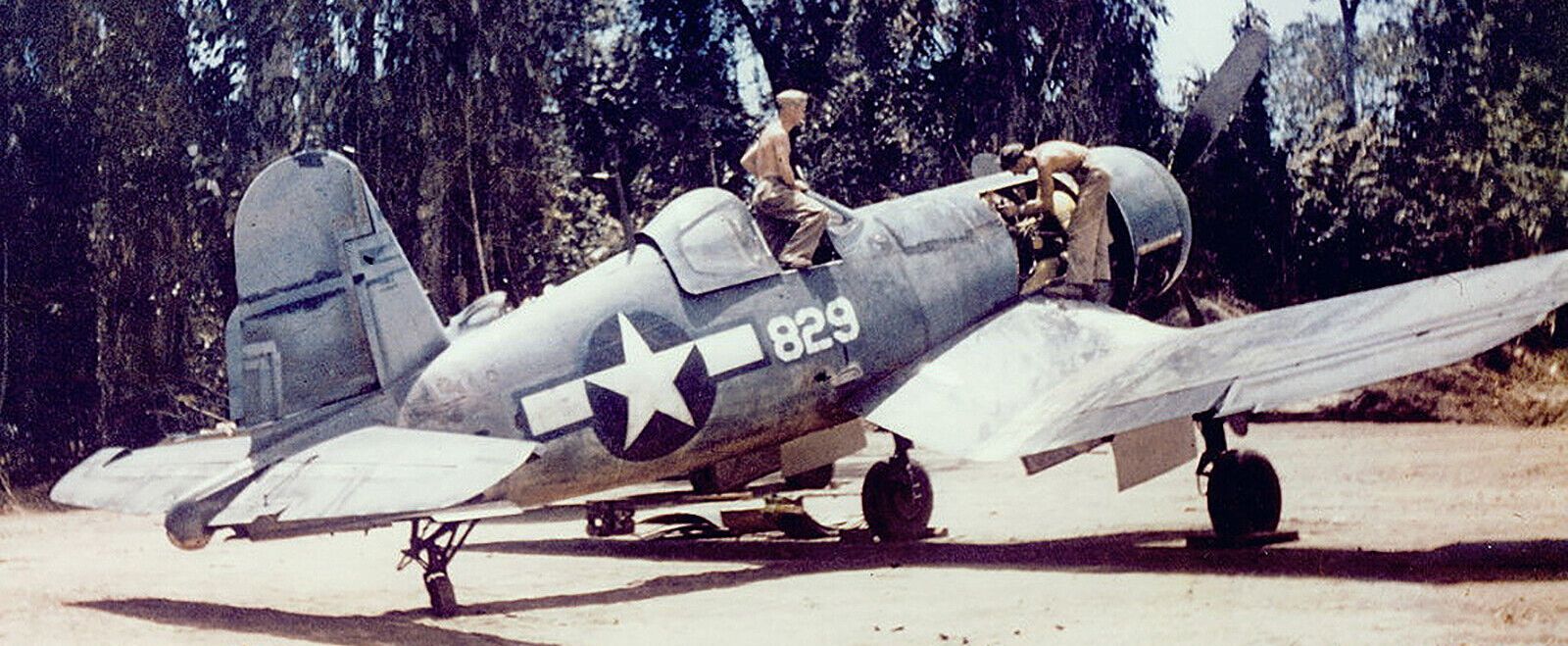
War for most men is not fighting or marching in parades. It is sitting around somewhere wondering what the hell you are supposed to be doing. My role was to clean guns and planes and edit a mimeographed newsletter about our squadron, which was called the Whistling Devils — the name Tokyo Rose had given us.
Engebi was a coral island surrounded by a sea of boredom. We were bombed once by the Japanese, on March 8, 1944, and it would not have been too bad, except the pilot got lucky and hit an ammunition dump. We harpooned sharks, found cat’s eye shells in the water, played volleyball, and saw an occasional movie.
It wasn’t much of a war, but I had learned after Parris Island that the secret to a long life was to keep my mouth shut and never, ever volunteer for a better assignment. Since the Marines have a purpose for everything and were in charge of my fate, there was no reason for me to change their game plan.
One of our extracurricular activities was to peddle “Jap” souvenirs to the merchant ships and naval crews that anchored in our lagoon. The most popular item was Japanese flags, which we made ourselves. We sprinkled red paint to resemble blood on the flags next to the Rising Sun. We charged anywhere from fifty to one hundred dollars for one, and I wouldn’t be surprised if they are still hanging in the basements of ex-GIs as proud souvenirs of World War II. The sales were made from our landing craft, which cruised around the ships with half-naked men waving those flags in the manner of island traders.
I often found myself in fistfights over my Jewish persuasion. A few of the men in our squadron had problems with Jews, either because they had never met any, or because there were not many Jews in the Marine Corps. Once you were called a dirty Jew, or even just Jew, you had no choice but to fight, or risk being considered a Jewish coward. I wasn’t big and I wasn’t strong, and I wasn’t even bar mitzvahed, but when somebody challenged me for being Jewish, adrenaline surged through my body, and I just kept swinging with tears in my eyes.
While I was battling to defend my people, my father’s Jewish acquaintances at home were telling him that anyone who joined the Marines was a crazy mixed-up kid who didn’t have a brain in his head.
One day, a ship anchored offshore and unloaded a fresh group of enlisted men. It turned out they had come to relieve us. No one was made more welcome. We sold our “Jap” souvenirs to them at cost.
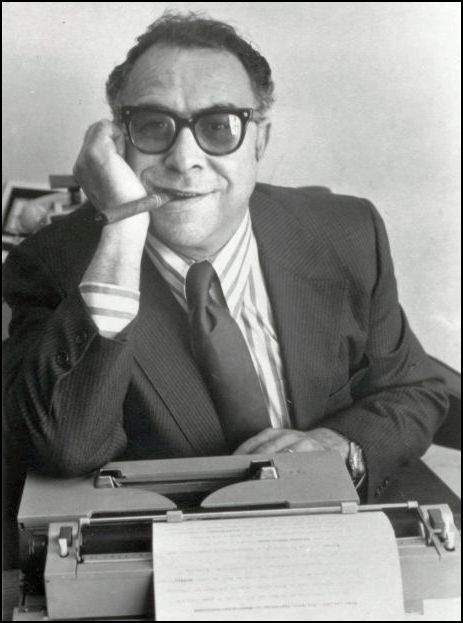
In 1965, LIFE magazine asked if I was interested in going back to visit the boot camp at Parris Island and writing a piece about it. I said that I’d like that, but it would be better if I could find my drill instructor, Pete Bonardi and return with him. I called Marine Crops headquarters and asked for his last address. I looked him up in a Queens phone book, and damned if he wasn’t still at the address of twenty years ago.
I dialed, and a male voice answered, “Bonardi.”
I said, “I don’t know if you’ll remember me or not, but this is Private Buchwald from Platoon 911.”
“Yeah, I remember you. I was sure you’d get killed.”
“I’m sorry, sir. I’m still alive. I’m calling about returning to Parris Island to do a story for LIFE magazine, and they thought it would be a good idea if you went with me.”
When we got together, Bonardi still looked the same. I was still in awe of him.
When I was in therapy, I had tried to examine all the different influences the Marine Corps had on me. I had begun to realize that the Corps was the first real father figure I had ever known. It was a love-hate relationship, as many father-son ones are.
It was twenty-five years since I had been to Parris Island. Not much had changed. The only difference was that, this time, I was less frightened.
I was also amused at the way Bonardi observed the scene. He was furious about how soft the training had become, and amazed that you could no longer spray saliva in a recruit’s face when you yelled at him.
He was filled with nostalgia as we walked around. “Hey, do you remember when I caught you with your hands in your pockets? I made you fill them full of sand and sew them up, and you were carrying fifteen extra pounds around for a week.”
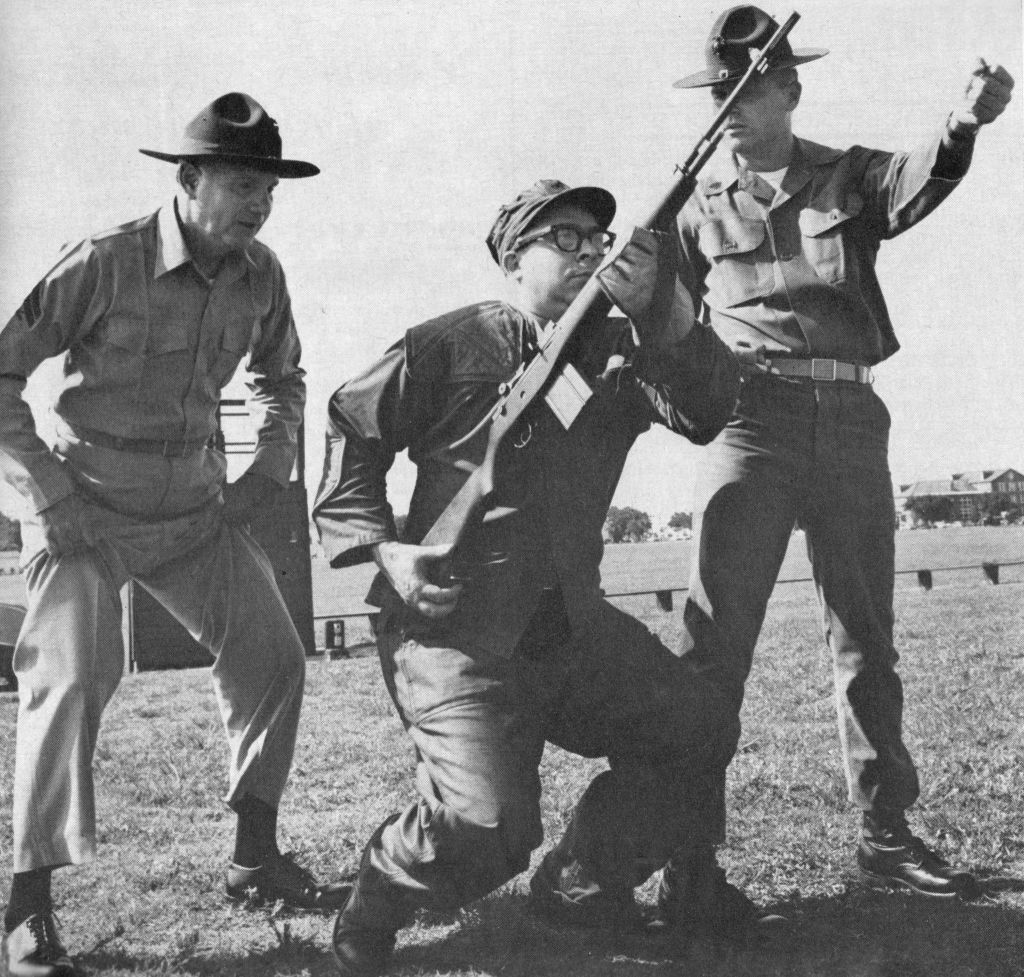
“Those were the good old days,” I responded.
“You were really a shitbird,” he told me with warmth.
“You always told me that.”
The obstacle course now seemed like Mount Everest. I made a pass at it and fell in the mud. Bonardi yelled at me. “Twenty-five years ago, I would have hung your testicles from that tree.”
“Because I was always by your side, darling, saying things like, ‘If you don’t do it, you yellow pissant from Brooklyn, I’ll have you clean the floor with your tongue.”‘
What I always loved about Bonardi was that he used reason when he talked to you.
Bonardi and I finished our week’s tour, and we agreed that the present DIs were a bunch of bleeding hearts and were turning recruits into debutantes.
In 1991, I received a call from a man who said, “Your pal Bonardi is dying from cancer. He's at the hospital in Southampton, Long Island.”
I called the hospital and spoke to him. He told me that he was very sick and he didn’t think he was going to make the obstacle course. After I hung up, I remembered the photos taken by LIFE, which were in the files. I took out one of the two of us, nose to nose. I wrote on it, “To Pete Bonardi, who made a man out of me. I’ll never forget you.” And signed it.
His wife wrote to me and said that Pete put it up in his hospital room so that everyone could read it. The clincher was that, just before he died, Bonardi requested that the photo be buried with him. It was.
Copyright © 1993. Reprinted by permission of the estate of Art Buchwald.

